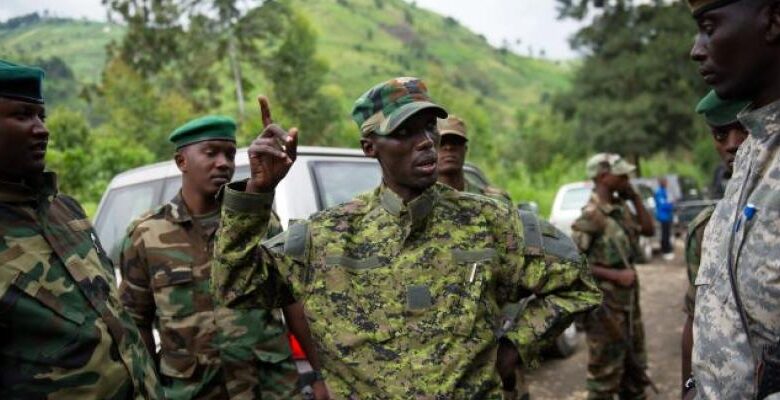M23 Rebels Withdraw From Villages Captured In DR Congo
The rebel movement said it “wishes for a peaceful resolution of the crisis” according to a statement it issued on Sunday.

The March 23 (M23) rebel movement on Sunday, April 10 announced that it was withdrawing its combatants from some of the villages they captured in eastern DR Congo last week.
The rebel movement said it “wishes for a peaceful resolution of the crisis” according to a statement it issued on Sunday.
After some days of calm, fighting resumed on Wednesday, April 6, between the DR Congo national army, FARDC and M23 rebels who captured 10 villages in Rutshuru territory of North Kivu.
“The M23 has taken the decision to once again withdraw from its newly captured positions in order to take control of its preoccupations through frank and fruitful dialogue with the Congolese government,” the M23 declared in the statement.
“The M23 has never had the intention of conquering space in order to administer it. Our sole motivation has been the peaceful resolution of the crisis which opposes them to the government in Kinshasa.”
As of Sunday, April 10, afternoon, it was not clear if the withdrawal had started.
The rebel movement had also expressed its intention “to hand over to the International Committee of the Red Cross, all the soldiers of the DR Congo national army captured at the front for them to be appropriately taken care of.”
The M23 fighters came out of their bastions in Rutshuru territory on March 28 and 29, 2022 and attacked positions of the DR Congo national army, FARDC.
After two days of fierce combat, leading to the displacement of tens of thousands of villagers towards the centre of Rutshuru and the Ugandan border, the rebels declared a ceasefire affirming that they wanted a peaceful settlement of the crisis that opposes them to the DR Congo government.
Also called the “Congolese revolutionary army”, the M23 is made up of elements of an old rebellion by Tutsis of Congolese origins. It had been defeated in 2013 by the FARDC but reappeared at the end of 2021, accusing the Kinshasa authorities of having failed to respect the terms of an agreement for the demobilisation and reinsertion of its combatants.
Support Our Journalism
There are millions of ordinary people affected by conflict in Africa whose stories are missing in the mainstream media. HumAngle is determined to tell those challenging and under-reported stories, hoping that the people impacted by these conflicts will find the safety and security they deserve.
To ensure that we continue to provide public service coverage, we have a small favour to ask you. We want you to be part of our journalistic endeavour by contributing a token to us.
Your donation will further promote a robust, free, and independent media.
Donate HereStay Closer To The Stories That Matter




